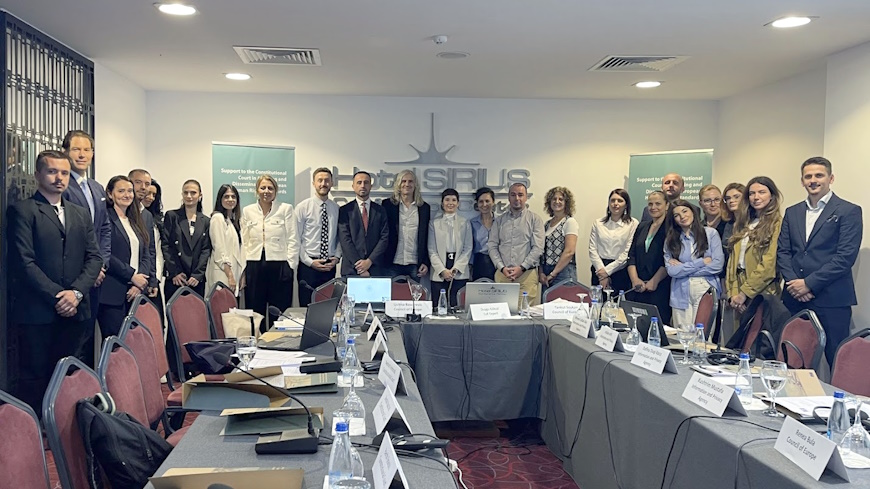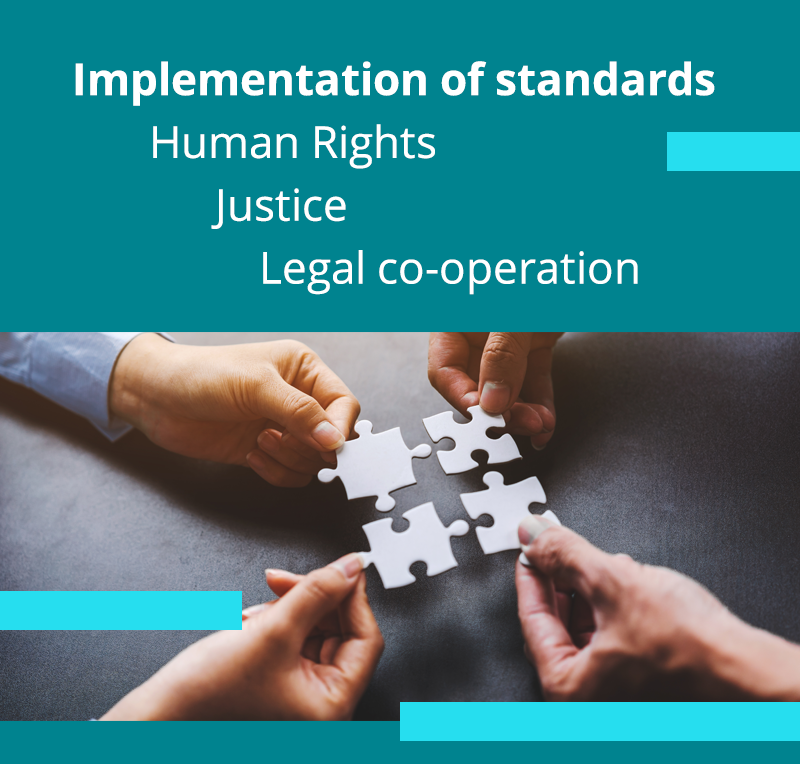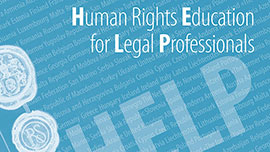Protection of the right to privacy faces many challenges in modern age considering the rapid digital transformation of society. The expansion of internet and electronic communications in last decades brought many advantages for humankind, but also serious concerns for protection of personal data and privacy with deployment of intrusive hacking tools, unlawful video surveillance, and interception of private communication and correspondence.
Alongside these developments, our project organised a two-day workshop with legal advisors of the Constitutional Court of Kosovo* and data protection officers of the Information and Privacy Agency on the right for respect of private and family life, protected under the Article 8 of the European Convention on Human Rights (ECHR). 25 professionals of these two institutions reinforced knowledge of the most important standards covered by this Article of the Convention by exploring rich caselaw of the European Court of Human Rights (ECtHR), European Court of Justice (ECJ), national jurisprudence of Germany and other European countries in this field.
Through presentations, case studies and Q&A sessions, participants were introduced general scope of the right for respect of private and family life and meaning of the “autonomous” concept of this right including sphere of private life, physical, psychological and moral integrity, identity and autonomy, family life, home and correspondence. They were presented key concepts and ECtHR practice on data protection, access to information about family/identity, surveillance, reproductive rights (fertility treatment, abortion, giving birth), compulsory medical treatment, and environment (including climate change). In the context of practical implementation of the Article 8 ECHR, they analysed relevant ECtHR caselaw by applying 3-stage test on legality, legitimate aim, and proportionality of any interference in the right for respect of private and family life. To this end, they were also presented negative and positive obligations of the State under this Article of the Convention.
An inspiring discussion developed around key challenges associated with surveillance of telecommunications and digital communication in a criminal context in comparative examples of caselaw in Germany and other countries, and the main findings of the case-law of the ECtHR. In respect of the use of personal data as evidence in criminal proceedings, participants were presented challenges related to “stop and search” police powers, searches and seizures through home visits, and privacy issues related to lawyer-client relationship.
Participants also engaged in analysis of ECtHR caselaw with regards to data collection (including covert surveillance), data storage, and disclosure by State authorities as well as data protection standards and access to personal information including health related data. Throughout discussions and exchanges, the need for introduction of adequate safeguards and adoption of legislation with sufficient level of quality and foreseeability in this area was highlighted by all practitioners.
The workshop was facilitated wit support of three international experts, former and current lawyers of the Registry of the European Court of Human Rights, and prominent criminal defence lawyer with extensive experience in caselaw of the ECtHR, European Court of Justice (ECJ), and German judiciary.
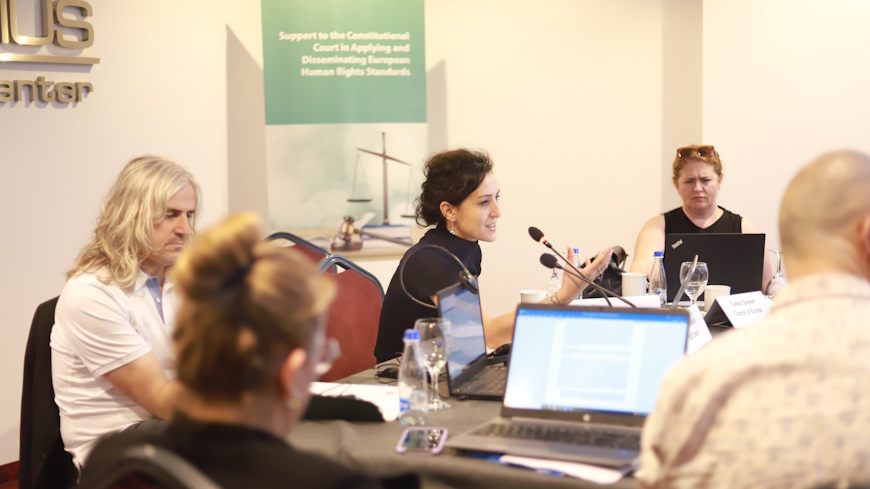

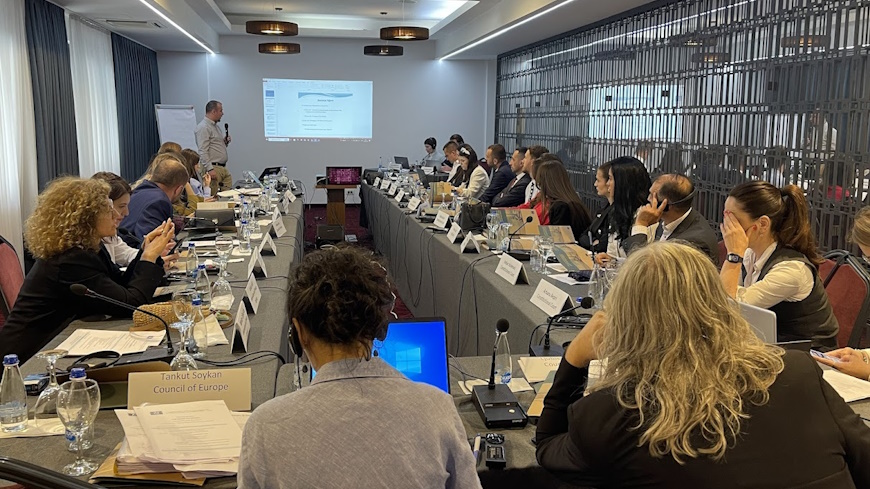
[1] All references to Kosovo, whether to the territory, institutions, or population, in this text shall be understood in full compliance with United National Security Council Resolution 1244 and without prejudice to the status of Kosovo.



